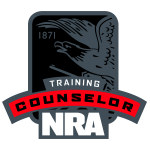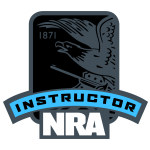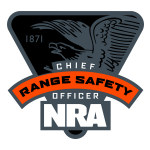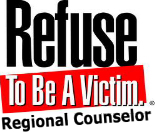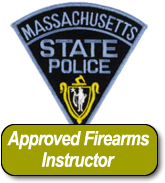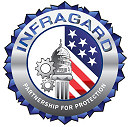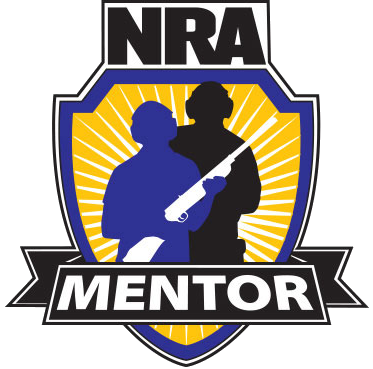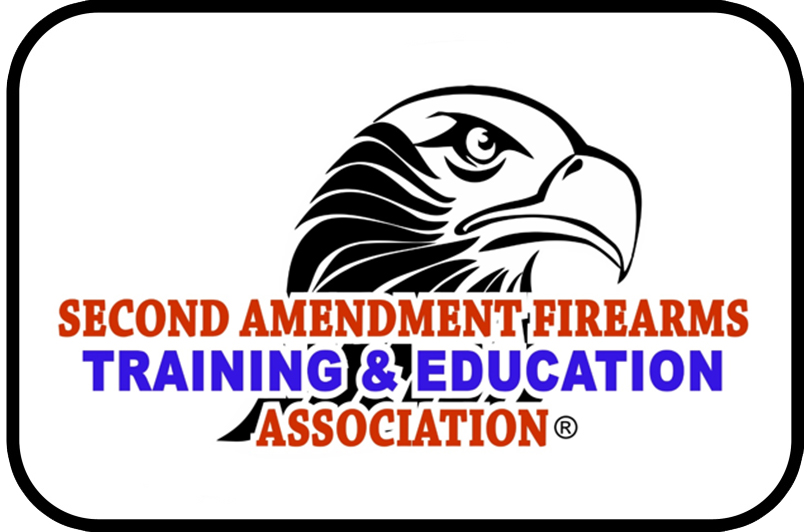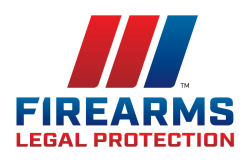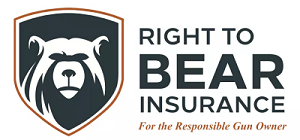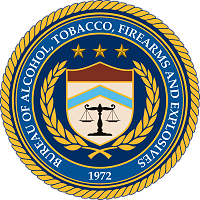Who is Suitable? A Personal Story

by Michelle Levell, Chairwoman
 Turns out that the answer to that question is surprisingly difficult. I thought that when I submitted my Pistol Revolver License renewal in early July that it would be a simple process. I could not have been more wrong.
Turns out that the answer to that question is surprisingly difficult. I thought that when I submitted my Pistol Revolver License renewal in early July that it would be a simple process. I could not have been more wrong.
In January of this year, I attended the Senate Judiciary Committee hearing on Senate Bill 116, the bill that would clarify the requirements for applicants seeking a Pistol Revolver License. I heard testimony from numerous people who were denied by their police chief for arbitrary and subjective reasons. Later in March, I heard more people speak to this same problem. Why was it so difficult to determine who could have a license?
It turns out that the requirements are undefined. The criteria rests on who local law enforcement believes is “suitable” enough. And believe it or not, "suitability" is not defined anywhere in statute. SB 116 sought to define it as anyone who is not prohibited by New Hampshire or federal statute from possessing a firearm. These prohibitions are clearly spelled out in statute and include a number of exclusions including felons, unlawful users of controlled substances, and those convicted of a domestic violence misdemeanor.
Also in March, the Women's Defense League of NH revealed the discriminatory origins of NH's Pistol Revolver License. There are clear ties connecting statutory creation of the license to the Amoskeag Mills strike in the 1920s, a device intended to punish and effectively prohibit firearms ownership and possession by ethnic minorities. Nearly 100 years later, the NH license statutes enacted at that time are largely unchanged today. SB 116 would have removed the subjectivity from the statute by defining "suitability" and removed this discrimination from NH law.
Unfortunately, Governor Hassan ignored the nine decades of discrimination and vetoed SB 116; worse, the NH legislature failed to override it. The vague and subjective "suitability" criteria stands in current NH statute.
I am not a prohibited person; in fact, I've never even gotten a speeding ticket in my entire driving history so I thought there would be no question about getting my license renewed. I received my first PRL from my police chief in 2007, and I expected the second renewal to be a simple process.
The actual application is pretty straight forward. There are a few questions, asking if you have been previously denied a license or if you are an unlawful user of controlled substances, a felon, etc; all in keeping with the federal and state definitions of a prohibited person.
The form also requires three references and their addresses, which I supplied. One of my references was a friend I listed on previous applications. The only difference is that this year I did not supply phone numbers. The form does not have a space for this additional information nor are they required by statute. However, my hometown police department wanted them and even told me that my license would likely be denied if I failed to provide them. While I understand that phone numbers would be convenient and expedite the process, I have a personal policy of not providing information beyond what is required by law.
As required by NH statute, the police have 14 days to either issue the license or decline it with a written explanation. But several days into the process, I got a reminder phone call from one of the police captains, again wanting my references' phone number. I again declined to provide them. Apparently, the PD did not send out correspondence to my references when I dropped off the application.
This set off an odd series of written exchanges with my references. Apparently, the inquiry letter from the police department did not state what information they wanted in order to determine my "suitability" so my friends were not sure what to provide.
Ultimately, the police chief gave me a written denial of my Pistol Revolver License because they were unable to get substantive information from my references. This made no sense to me because when I gave phone numbers on previous applications, my references were never even contacted. Further, I have also served as a reference several times for friends and was contacted only once by a police department. Per state law, the default is to issue a license unless there is evidence to deny it.
I was quite stunned by this unpredicted turn of events. I had submitted a complete and accurate application. This was a renewal and the same police chief had granted my license twice before. However, today I have a very public profile on social media and even ran for office in 2014. I have a blog and am involved in multiple non-profit organizations across the state. What could be the hang up? Did the police chief disagree with my political positions from my campaign? Did he not like my advocacy work for school choice and Second Amendment rights? Maybe he didn't like that I'm a former homeschooling parent. Unfortunately, because of the undefined "suitable" terms in the current statute , the chief could have held any of the above against me and as such, found me not “suitable”.
Astonishingly, I found that according to state statute, my only recourse was legal action through the district court and I hired attorney Evan Nappen to represent me. I was not innocent until proven guilty. NH's process forces law-abiding citizens to take time off work and spend significant money to file with the court. Hiring an attorney costs even more and because not all aggrieved people have the resources to pursue a legal remedy, in addition to discriminating against ethnic minorities, the law also favors the well to do.
To add insult to my injury, this should have been an expedited hearing but the court cancelled and rescheduled my date twice on the vaguest of excuses. The hearing was finally held on October 28, 2015, a full 112 days into my application process.
The prosecuting attorney representing the police department had the burden to show the court "clear and convincing proof" to deny my application. He couldn't find it. In fact, after calling two of my references to the witness stand, the judge, the Honorable Robert S. Stephen, quickly ruled in my favor, and ordered the police to issue my license.
Shortly after our hearing concluded, my attorney received a call from the police department indicating that they would have my license available immediately. They also offered to correct the unlawful statements on their website that indicated the applicant's and references' phone numbers were required.
This was a big win, not only for me personally, but for residents in my town, lawful firearms owners across the state, and police departments.
This case shows how capricious and arbitrary "suitability" is as the criteria for granting a Pistol Revolver License. It also highlights the potential liability police departments face when trying to process the applications. Although I could pursue this case further to the Superior Court to get reimbursement for my attorney fees, I will not do so. It was my intention all along to get my license, and I have it now. However, I think the issue should move forward with the legislature and public.
There are several Legislative Service Requests (LSRs) already filed for the 2016 legislative session. The discussion regarding "suitability" is far from over in the New Hampshire House and Senate. These LSRs will become bills that will be debated in committees, likely in early spring.
Why not define "suitable" as being consistent with New Hampshire and federal statute and provide unmistakable requirements for determining whether or not an application should be approved or denied?
Why perpetuate a law with origins in hatred and bigotry? Discrimination in any century is abhorrent and must end.
More than ever, I believe that suitability must be defined in statute for the protection of law-abiding citizens, police departments, and the taxpayers who ultimately would be responsible for any judgment against the police. To leave NH statute and the Pistol Revolver License vague is to leave our police and towns exposed to needless lawsuits.
I hope this experience accomplished more than restoring my Pistol Revolver License. I hope it allows law-abiding citizens and police departments to work together to find a reasonable definition of suitable so other firearms owners and towns do not have to go through what I did. Thankfully, I reached an amicable and satisfactory solution with my police department that can be a model for other departments and pave the way for a positive legislative solution.
Tags: HB-582, Michelle Levell, New Hampshire, pistol license law NH, suitability, NH Pistol Revolver License


 With the recent surge of firearms sales after Sandy Hook & San Bernardino etc, we have also seen a huge influx of new firearms instructors and training academies. But buyer beware, not all instructors or so called academies are created equal and some can actually get you hurt or even get you in trouble with the law.
With the recent surge of firearms sales after Sandy Hook & San Bernardino etc, we have also seen a huge influx of new firearms instructors and training academies. But buyer beware, not all instructors or so called academies are created equal and some can actually get you hurt or even get you in trouble with the law. 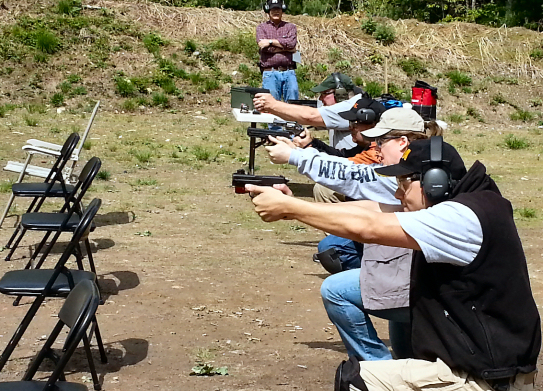 5. TEACHING STYLE - What kind of instructor are they, as they all have their own teaching style, some get off track easily, some over teach and some under teach. Most firearms classes are objective based which means all students should have that particular lesson down before the instructor moves on to the next lesson. Does the Instructor make sure of this, does he encourage questions be asked at any time, does he ask you if you have any questions. Does he make the class fun, does he stay on topic ~ man, I have seen instructors where at the end of the day you actually know more about the instructor then you do about what you came to learn.
5. TEACHING STYLE - What kind of instructor are they, as they all have their own teaching style, some get off track easily, some over teach and some under teach. Most firearms classes are objective based which means all students should have that particular lesson down before the instructor moves on to the next lesson. Does the Instructor make sure of this, does he encourage questions be asked at any time, does he ask you if you have any questions. Does he make the class fun, does he stay on topic ~ man, I have seen instructors where at the end of the day you actually know more about the instructor then you do about what you came to learn. 10. FIRST AID TRAINING - None of us like to think that something could go horribly wrong and we get hurt in a class. I'm not trying to scare you and I must say that range accidents are actually very rare, but they do happen. This is another area that a good instructor understands and takes steps for, this means they have taken the time to get certified in Emergency First Aid, CPR and AED. Remember that anything can happen on the range, not just gun shot wounds but heart attacks, strokes, broken ankles, bee stings etc... it's nice to know that the instructor is ready for anything and actually has a plan to deal with emergencies of any kind.
10. FIRST AID TRAINING - None of us like to think that something could go horribly wrong and we get hurt in a class. I'm not trying to scare you and I must say that range accidents are actually very rare, but they do happen. This is another area that a good instructor understands and takes steps for, this means they have taken the time to get certified in Emergency First Aid, CPR and AED. Remember that anything can happen on the range, not just gun shot wounds but heart attacks, strokes, broken ankles, bee stings etc... it's nice to know that the instructor is ready for anything and actually has a plan to deal with emergencies of any kind. 13. DIVERSITY - Another important aspect is diversity of your instructor. As you may soon learn when you start taking classes is that a firearm is a tool of last resort and you can only use that tool when your life is threatened with death or grave bodily injury. On top of that is the fact that many situations that require you to protect yourself, happens in a split second and many times you cannot get to that gun to protect yourself, so you have to know how to use other tools and techniques. Prevention is also the best way to stay alive since avoiding a gun fight in the first place is the best way to win a gun fight. So you also need to know situational awareness, avoidance and deescalation techniques and much more. Does your instructor know this is kind of stuff or offer other classes such as pepper-spray classes, situational awareness, some hand to hand techniques. Remember your gun is a tool of last resort so you cannot always go straight for that gun, there many things you need to know and understand legally and escalation of force is not something you want to learn by trial and error.
13. DIVERSITY - Another important aspect is diversity of your instructor. As you may soon learn when you start taking classes is that a firearm is a tool of last resort and you can only use that tool when your life is threatened with death or grave bodily injury. On top of that is the fact that many situations that require you to protect yourself, happens in a split second and many times you cannot get to that gun to protect yourself, so you have to know how to use other tools and techniques. Prevention is also the best way to stay alive since avoiding a gun fight in the first place is the best way to win a gun fight. So you also need to know situational awareness, avoidance and deescalation techniques and much more. Does your instructor know this is kind of stuff or offer other classes such as pepper-spray classes, situational awareness, some hand to hand techniques. Remember your gun is a tool of last resort so you cannot always go straight for that gun, there many things you need to know and understand legally and escalation of force is not something you want to learn by trial and error.